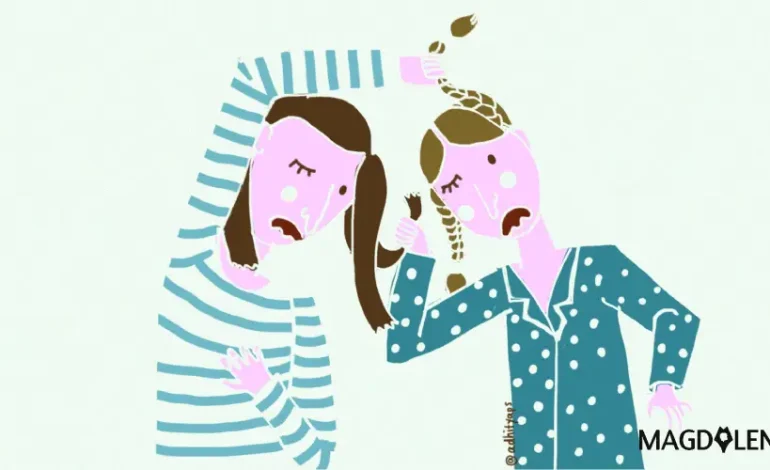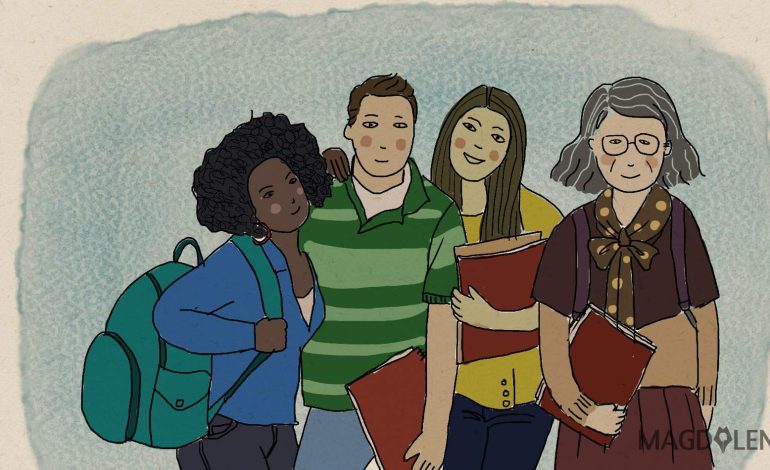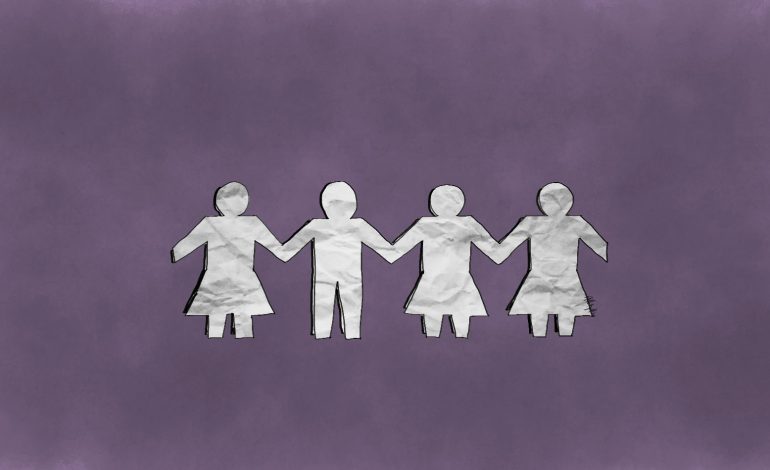Forget Rivalry: Why Women Should Help Each Other

I was lucky to grow up with unwavering support from women. I’m the third of five children, and I grew up with three sisters and a brother. Sibling rivalry was not an issue in our household.
Of the sisters, I was always the academic one. I loved school and got scolded for reading at the dinner table. When I was 12, I got a scholarship to a school my parents would’ve never been able to afford, which paved the way for my admission to Yale.
I was afforded opportunities my sisters were not, but there was not a single day in my life when I felt my sisters resented me for it. And neither did I resent them for their achievements in sports, dance and art. I credit my success to their support, because we allowed each other to shine. We rooted for each other and stood by each other. That experience led me to seek out similar friendships, founded on encouragement and loyalty.
My best friend of over 17 years and I have been relentlessly supportive of each other’s ventures since middle school. She now works for Facebook, after starting her career at Google, and I am immensely proud of her. In college, my three roommates and I were never competitive. In fact, I think we were too boastful of each other’s achievements – celebrating everything from my roommate’s recently published book, to making it to class with a hangover (more congratulatory text messages for that than the book). We graduated never knowing each other’s GPAs.
Often, we would say, “Thank God we’re not like other girls, we don’t like drama.” Or “I love us – we’re like guys!” But only recently have I realized that sort of thinking is damaging. There should nothing be unusual about women supporting women.

Not in our blood
It is a myth that it’s a girl thing to be catty and overly competitive. Women are not genetically or biologically more likely than men to undermine each other. Marianne Cooper, a sociologist at the Clayman Institute for Gender Research, wrote a piece on The Atlantic about why women pull each other down. Studies show that the tendency for women to be catty towards each other is triggered by two factors: an environment wherein women are discriminated against, and lack of gender solidarity.
Cooper explains that women do not help each other when they feel that there is a negative connotation to being a woman. For example, let’s say I am one of few women in a male-dominated workplace, where stereotypes against women (dramatic, incompetent, emotional, etc) are rampant. In this setting, studies show that I would more likely distance myself from other women, because I don’t want to be discriminated against, as it may damage my own career.
This is especially true when there are not enough spots for women in high positions. If there are only limited opportunities for women, then women are less likely to help each other.
Catty behavior comes out further in women who don’t identify strongly with their gender. For example, if I don’t care much about connecting with other women, or if I think my gender is not that important, then I am more likely to set myself apart from other women and less likely to help them.
But this “social distancing” is not exclusive to women. It’s common among marginalized groups, wherein in individuals will distance themselves, to avoid the negative stereotypes about their group from being applied to them. The same behavior is observed for minorities in interracial contexts, different social classes, and so on.
So while there are indeed, just naturally mean girls (as there are mean men), contrary to popular belief, being catty is not in a woman’s DNA. Why then, should we not be more helpful to one another?
Lots of room
Helping other women also benefits not just the one being helped, but also the helper.
At work, I have been equally lucky to have been surrounded by supportive women. I have found that having uplifting, secure, and generous female mentors have made the world of a difference. I largely credit my career and my progress to them.
It is a myth that it’s a girl thing to be catty and overly competitive. Women are not genetically or biologically more likely than men to undermine each other.
Not only is it inspiring to see women in positions of power, it is also crucial because I am able to relate to them on various issues in a way I may not with male mentors – like dealing with misogyny on the way up, balancing career and relationships, and yes, other women bringing them down as they climb the ladder. There is a special bond when women mentor women.
And good things happen when women do that for one another. Sheryl Sandberg, in her New York Times article on the myth of the catty woman, cites a study that women who help negotiate salaries for other women on their team get a raise too. Another survey showed that women engaged more socially with female mentors, and viewed them as role models.
In today’s day and age, there are more and more opportunities opening up for women – thanks to those who came before us – and less and less reason to pull each other down, especially for millennials. There’s enough room on top.
Changing mentalities
I would be lying if I were to say I was never envious, never insecure, never said a negative word about another woman to make myself look better. Of course I have. It’s a battle we face daily.
But the more we don’t help each other, the worse it will be for us women in the long run (and the longer it will take for us to achieve the equality we desire). This is true in the workplace, and everywhere else – including Facebook or Instagram – where it’s tempting, and so easy, to pull each other down.
This shift in thinking requires a whole new mindset and the undoing of stereotypes in our heads. It has to start with us. For instance, when a woman dates a string of men or wears skimpy clothing, it is so easy to call her derogatory names. Don’t. When a woman is moody and emotional, let’s not invalidate her feelings and attribute it to PMS. It invalidates us all. And let’s stop the double standards. When we apply them, we empower the sexists and validate their misogyny, especially on social media.
The studies tell us something important. Society pits women against each other. Let’s not fall into that trap. The challenge is for us women to be conscious of our behavior, so we can avoid them – especially in male-dominated environments, and when stereotypes against women are widespread.
We must also understand the importance and advantages of identifying as women, of wearing that title with pride. And of helping and standing up for one another, offline and online.
So the next time we do something “cool” or “tough,” let’s not liken ourselves to guys or distance ourselves from other women. There’s a quote a friend sent me this morning, which I love: “Behind every successful woman is a tribe of other successful women who have her back.”
So instead of, “We’re not like other women, we back each other,” it should be, “We’re women, so we back each other.”
Natashya Gutierrez is Bureau Chief of Rappler Indonesia, and reports on Indonesian issues for the international audience. She was awarded several journalism fellowships including the 2015 Asian Journalism Fellowship in Singapore, and the 2014 Reporting ASEAN fellowship. She received the Hildegarde Award for outstanding women in journalism in 2015. Natashya graduated from Yale University with a degree in psychology.
This story was first published in Rappler.com, a Manila-based social news network where stories inspire community engagement and digitally fuelled actions for social change.






















